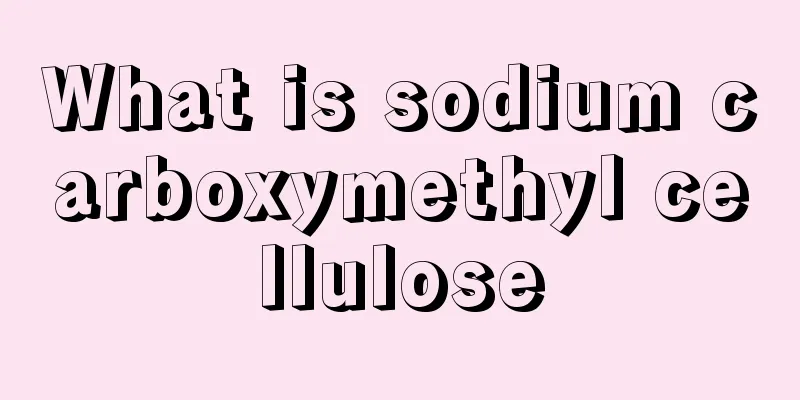What is sodium carboxymethyl cellulose

|
Sodium carboxymethyl cellulose is a type of cellulose that is widely used in the world. It is also a cellulose derivative of glucose polymer. It usually appears as white fibers or granular powder. It has the characteristics of no taste, no odor, good hygroscopicity, and is insoluble in organic solvents. It is generally used as a thickener in food and can also be used as a drug carrier in industry. Main Application It is used as a thickener in the food industry, as a drug carrier in the pharmaceutical industry, and as a binder and anti-reprecipitation agent in the daily chemical industry. Used as sizing agent and protective colloid of printing paste in printing and dyeing industry. In petrochemical industry, it can be used as a component of oil fracturing fluid. Contraindications Sodium carboxymethyl cellulose is incompatible with strong acid solutions, soluble iron salts, and some other metals such as aluminum, mercury and zinc. When the pH is less than 2 or when mixed with 95% ethanol, precipitation will occur. Sodium carboxymethyl cellulose can form co-agglomerates with gelatin and pectin, and can also form complexes with collagen, which can precipitate certain positively charged proteins. quality The main indicators for measuring CMC quality are degree of substitution (DS) and purity. Generally, different DS will result in different properties of CMC; as the degree of substitution increases, the solubility increases, and the transparency and stability of the solution also improve. It is reported that CMC has better transparency when the degree of substitution is 0.7-1.2, and the viscosity of its aqueous solution is maximum when the pH value is 6-9. In order to ensure its quality, in addition to selecting the etherifying agent, some factors that affect the degree of substitution and purity must also be considered, such as the dosage relationship between the alkali and the etherifying agent, the etherification time, the water content of the system, temperature, pH value, solution concentration and salts. CMC is usually an anionic polymer compound obtained by the reaction of natural cellulose with caustic soda and monochloroacetic acid, with a molecular weight of 6400 (±1 000). The main by-products are sodium chloride and sodium glycolate. CMC is a modified natural cellulose. The Food and Agriculture Organization of the United Nations (FAO) and the World Health Organization (WHO) have officially called it "modified cellulose" Characteristics This product is the sodium salt of cellulose carboxymethyl ether, an anionic cellulose ether, white or milky white fibrous powder or granules, density 0.5-0.7 g/cubic centimeter, almost odorless, tasteless, hygroscopic. It is easily dispersed in water to form a transparent colloidal solution, and is insoluble in organic solvents such as ethanol. |
<<: What are the causes of inability to bend finger joints?
>>: How to relieve stomach pain
Recommend
My eyes feel like there are black spots floating
Some people always feel that there are small blac...
Those people are not suitable for mugwort fumigation
Mugwort has great functions in traditional Chines...
The best way to treat colon cancer is with Chinese medicine
Colon cancer is a common digestive tract malignan...
Which one is better, Xuhanting or Yupingfeng
For some friends who are prone to night sweats, C...
The story behind fake anti-cancer drugs in Liaocheng
With the popularity of "Dying to Survive&quo...
How should red wine be stored
Red wine is an indispensable drink in every house...
Upper abdominal pain and bloating
There are many different types of stomach pain. B...
What causes bitter, dry and bad breath in the mouth
The problem of dry mouth, bitter taste and bad br...
Can kidney cancer patients do strenuous exercise?
Kidney cancer patients cannot do strenuous exerci...
Let's take a look at the six symptoms of colon cancer
Although colon cancer is a disease that many peop...
Are there targeted drugs for gastric cancer treatment?
Are there targeted drugs for the treatment of gas...
What happens when there is a hollow space inside the fingernail
Some friends find that there are hollow spaces in...
How to remove cellulite
The appearance of cellulite is very annoying for ...
Which folk remedies are effective for treating liver cancer? 7 folk remedies for treating liver cancer are recommended
Liver cancer is terrible and is known as the king...
The left testicle is aching
The testicles are the expression of male hormones...









